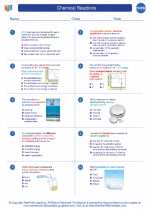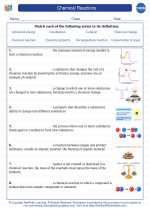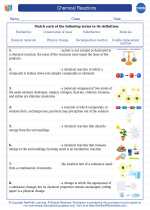Topic: Land
When it comes to chemistry, the concept of "land" does not have a direct correlation. However, if you are referring to the role of land in chemical processes, we can discuss the following:
Study Guide
1. Environmental Chemistry
Study the impact of human activities on the land, such as pollution, deforestation, and agricultural practices. Understand how these activities can lead to chemical changes in the soil and water, affecting ecosystems and human health.
2. Soil Chemistry
Explore the composition of soil, including its mineral content, organic matter, and the chemical processes that occur within the soil. Learn about nutrient cycles, pH levels, and the role of soil in supporting plant life.
3. Geochemistry
Examine the chemical composition of rocks, minerals, and the Earth's crust. Understand how geological processes, such as weathering and erosion, can lead to the formation of different types of landforms and the release of various chemical compounds into the environment.
4. Land Use and Resources
Investigate the utilization of land for mining, agriculture, and urban development. Learn about the chemical impact of resource extraction, soil fertility management, and the environmental consequences of land use decisions.
5. Analytical Techniques
Understand the analytical methods used in environmental and soil chemistry, such as spectroscopy, chromatography, and electrochemical techniques. Learn how these techniques are applied to investigate chemical processes occurring in the land and to monitor environmental quality.
By studying these aspects of land-related chemistry, you will gain a comprehensive understanding of the chemical interactions and processes that occur within the Earth's terrestrial environment.
.◂Chemistry Worksheets and Study Guides High School. Chemical Reactions

 Worksheet/Answer key
Worksheet/Answer key
 Worksheet/Answer key
Worksheet/Answer key
 Worksheet/Answer key
Worksheet/Answer key
 Worksheet/Answer key
Worksheet/Answer key
 Worksheet/Answer key
Worksheet/Answer key
 Vocabulary/Answer key
Vocabulary/Answer key
 Vocabulary/Answer key
Vocabulary/Answer key
 Vocabulary/Answer key
Vocabulary/Answer key
